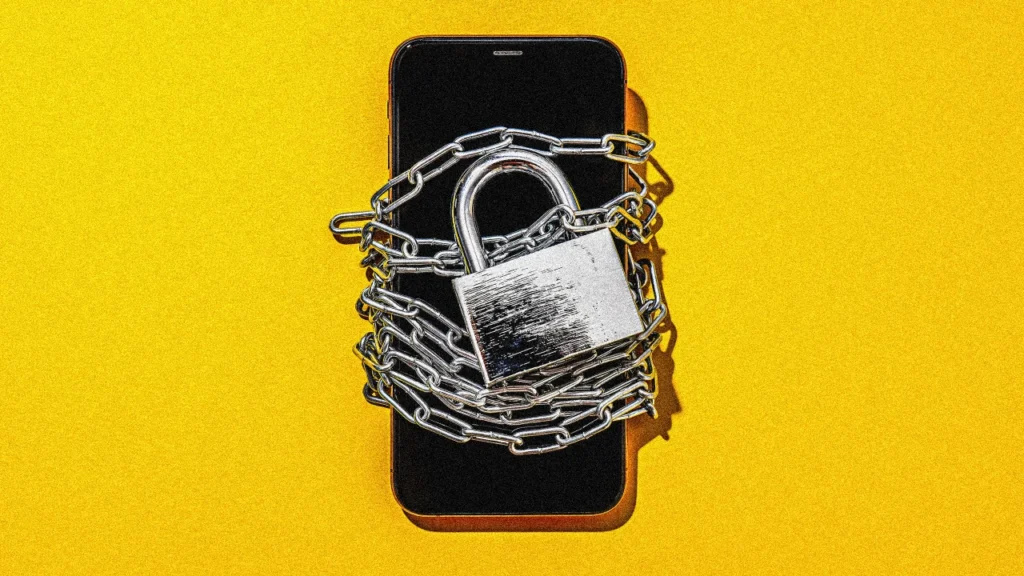
I run two companies, lead a team of over 20 people, mentor women entrepreneurs, and juggle multiple side projects. As a result, my calendar is filled with calls, meetings, decisions, deadlines, and the constant ping of notifications.
For years, I convinced myself that unplugging—even for a day—would be reckless. What if something urgent came up? What if everything collapsed?
Eventually, though, I did it. I turned off my phone for seven full days. No email, no WhatsApp, no Slack, no Instagram. Just silence—and, of course, a notebook.
This digital detox had a deeper purpose than a conventional holiday. In today’s world, being on vacation can mean keeping in touch, even if lightly: answering emails, reading news, scrolling through social media, and so on. We stay in the information bubble, which makes it difficult to tune out the noise.
I didn’t plan to turn this into a case study. I simply needed a break. What I didn’t expect was how deeply restorative and surprisingly productive it would be. My fear was that it would slow me down, but instead, it recalibrated me. And if you’re someone who thinks they can’t afford to disconnect, that’s exactly why you should. Here’s a way to start.
What the detox looked like
Because it was the weekend, I didn’t need to make a big announcement. Just four people—my mother, sister, business partner, and assistant—knew how to reach me in case of an emergency. Everyone else was left in the quiet.
It was all designed consciously. Part of the detox fell on the weekend, when I did not expect any urgent messages from clients or partners. Also, there were some public holidays, so in the end I only missed one day of work.
At the same time, I put my full trust in my team. Our managers are the first point of contact for clients, while my business partner is the go-to touchpoint for employees. Everyone also has my assistant’s contact details, so if something truly pressing had come up, they would have easily found out why I wasn’t responding.
So, late on a Friday night, I shut my phone down, and didn’t turn it back on until one hour before my next workday. This buffer gave me space to ease in without anxiety.
In case you’re wondering, there were no exceptions. The phone wasn’t silenced or stashed in a drawer I could access when I needed comfort. It stayed off, completely out of reach.
Here’s a snapshot of how a day looked like during this period:
- Mornings started with movement—pilates or a long run—followed by a mindful, unhurried breakfast.
- Then: hours of reading real books. No articles, no headlines.
- I took two naps a day for the first 48 hours. It was as if my nervous system had been waiting for permission to rest.
- By day three, something shifted. I began writing. Not for deadlines, just to think. I filled pages and pages—including my goals for the year, updates to my life balance wheel, forgotten ideas, coaching reflections, and personal values I hadn’t revisited in months.
- Creative clarity came fast, and because I opened the space for it, it stayed.
Three lessons I took with me
I walked away from my phoneless time with dozens of insights. Of those, three stayed with me, and they’ve reshaped both how I work and how I lead.
#1: Clients are mirrors
Every client relationship reflects something back at you. When you’re truly present, you start to notice what those reflections are teaching you—where your boundaries are too loose, where your expertise can deepen, what energizes you, and what drains you.
We also learn to listen more attentively. As a seasoned PR pro, I know what I need to do to achieve the best possible results—the biggest coverage, the boldest narrative, the most polished story. But over time, I’ve realized that what I consider “the best” isn’t always what the client actually needs. This shift in perspective changed the way I work, and helped me build deeper relationships with my clients.
I can honestly tell I’ve learned more about myself from client work than from many books or programs. Not because they teach me something directly, but because they hold up a mirror. When we’re receptive to it, that relationship becomes a shared process of growth.
#2: Choose your energy before the day begins
Before I made this shift, my mornings belonged to everyone else. I’d wake up and immediately jump into the noise—emails, deadlines, and messages. I was reacting to the world’s demands before I’d even taken a breath.
But now, I begin each day with a decision: Who do I want to be today?
I started setting a tone for the day, not with tasks, but with intention. Calm. Generous. Creative. Focused.
That one quiet choice each morning changed how I navigated everything else. I wasn’t reacting, I was leading from the inside out. And when you do that, the world starts meeting you differently. Now, the day feels like mine—not something I’m surviving, but something I’m actively shaping.
#3: Don’t make decisions just to relieve pressure
Many of us, especially high performers, can easily confuse urgency with clarity. We say yes, push forward, launch, commit. Not necessarily because we’re grounded, but because we’re tense.
Stepping away helped me name that pattern. During this time, I realized how often I made choices to soothe discomfort rather than move from vision.
Now, before anything, I pause and ask myself—Is this decision coming from a place of power, or from a place of pressure?
Why more people should try a phone detox
Your brain needs rest. Not scrolling, not content-switching. Real, deep rest. We don’t hesitate to give our muscles recovery days after a grueling exercise session. Why can’t we do the same with our minds?
When we stop consuming content, our brain starts producing it. Ideas resurface. Our vision returns. We reconnect to the version of ourselves that doesn’t need noise to feel alive.
Silence, as I learned, did not slow me down. It reintroduced me to what matters the most. We frequently imagine disconnection as a luxury. It’s not. From this new vantage point, I can say it is a leadership practice. It is how we step back into our lives with discernment, energy, and purpose.
Nothing burned down while I was gone. The world kept spinning. And I came back steadier, sharper, and more attuned to those things I hold dearly.
If you’re still thinking along the lines of, “I could never take a week off,” that’s exactly your sign. There is clarity waiting for you, patiently, on the other side of silence.






